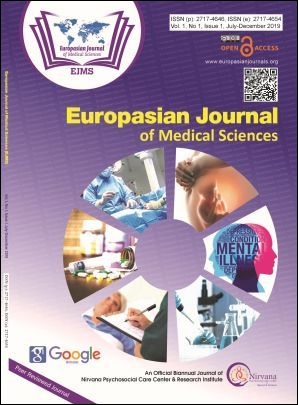Clinically Relevant Drug-Drug Interactions and Management Strategies: A Hospital based Study
Keywords:
Medication therapy management, Outpatients, Drug interactions, Prescriptions, Medication systemsAbstract
Background: Drug-drug interactions (DDIs) are one of the significant drug related problems encountered in clinical settings. Better understanding of the mechanisms, severity, and likely consequences of clinically significant DDIs are essential for proper medication therapy management (MTM). This study is conducted with the aim to aware clinical practitioners about clinically significant DDIs that occur in clinical settings and to help them manage such events with the accurate knowledge and technique.
Methods: A descriptive cross-sectional study was conducted in Shree Birendra Hospital, Kathmandu on the prescription of medical out-patient department from June to November 2020. Total 483 prescriptions were selected randomly. A panel of physicians, pharmacologists and clinical pharmacists under the supervision of a consultant physician using MICROMEDEX DRUG-REAX, Evaluation of Drug Interactions, Drug Interaction Facts, Drug Interactions: Analysis and Management was conducted. Main outcome measure was obtained by the supervisor’s endorsement on panelists' opinion about clinical importance of DDIs.
Results: A total of 2006 medicines were prescribed in 483 prescription samples. The number of drugs per prescription was in a range from 2 to 11 with 4.15 on average. DDIs were found in 21.53% prescriptions (n=104). 168 DDIs were identified with major, moderate, and minor types in 32 (19%), 85 (51%), and 51 (30%) respectively. As per occurrence, the panel determined that 13 interactions were clinically important.
Conclusion: The drug interactions identified by a panel of expert using standard evaluation tool are considered to be clinically important and likely to occur in the clinical settings. Clinically significant DDIs can be preventable and can also be used for the beneficial effects in MTM. Adequate knowledge regarding nature of DDIs, inclusion of automated system in prescribing and dispensing area, and inter-professional collaboration of a clinical team is liable to prevent and manage such events and help in rational drug therapy.
Downloads
Downloads
Published
How to Cite
Issue
Section
License
The author(s) retain the ownership of the copyrights for their work published in EJMS without any restrictions. Upon submission, the author(s) grants EJMS a license to publish, including to display, store, copy, and reuse the published content.
License to Publish
By submitting a manuscript to EJMS, the author(s) grant the journal a non-exclusive license to:
- Publish and distribute the content in all formats, media, and platforms (both existing and future), while identifying EJMS as the original publisher.
- Reproduce, display, and store the content in both print and online formats, including institutional and digital repositories.
- Translate, adapt, and summarize the work, including reprints, extracts, and abstracts.
- Develop derivative works based on the original content.
- Include the work in electronic databases and provide links to third-party materials.
Creative Commons Licensing
In addition to EJMS’s publishing rights, authors grant third parties the right to use, share, and distribute their work under the Creative Commons Attribution 4.0 (CC BY 4.0) International License. This allows unrestricted use of the content, provided proper attribution is given to the original author(s) and the journal.

